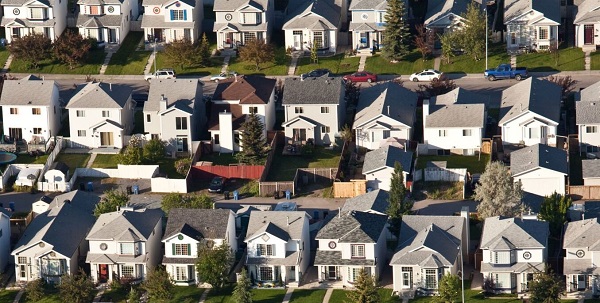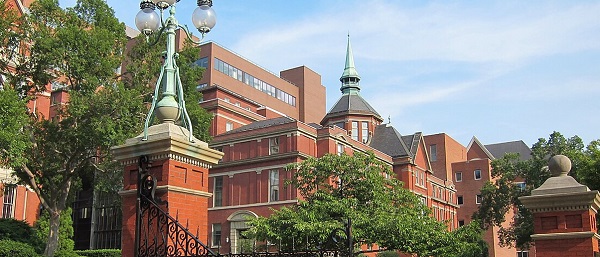Calgary
The Term “Starving Artist” Now Holds More Weight In Alberta, But There’s Hope.

Large and small organisations are coming together to support musicians struggling through this financial crisis. Multiple industries have taken some hard hits in recent weeks and it is looking like there are still troubles on the horizon. If we look at the effects of what an isolation order and social distancing have on our daily lives, individuals and groups who earn their income through social events will be left with few choices.
One thing that the music industry holds true is their support for passionate people to be successful in their own way. These are the kind of people who take their form of art and consistently innovate to create their own success, to which deserves a lot of respect in the current economic climate. We have all heard of the “starving artist” stage of a musician’s career. Now with stripped grocery stores and cancelled social gatherings of 15 people in Alberta, that phrase now holds more weight.
Let’s be clear, certain successful artists who have gained a high level of success, public awareness and can be seen driving brand new Escalades around LA may still take a hit financially, however now is the time to support the industry as individuals or groups that don’t have those same means and are struggling to pay their bills. For those who have had shows, tours, private bookings and event stages cancelled for the foreseeable future, there are multiple resources out there to get through the next few months.
Unison Benevolent Fund
 Unison Benevolent Fund is a non-profit, registered charity that provides counselling and emergency relief services to the Canadian music community. Unison has helped over 1000 individuals and their families in every province and territory, as well as Canadians living abroad during times of crisis. They also received a 1900% increase in registrations since the coronavirus outbreak.
Unison Benevolent Fund is a non-profit, registered charity that provides counselling and emergency relief services to the Canadian music community. Unison has helped over 1000 individuals and their families in every province and territory, as well as Canadians living abroad during times of crisis. They also received a 1900% increase in registrations since the coronavirus outbreak.
“We are here to help professional music makers in times of hardship, illness or economic difficulties”
They feel the pain for the music industry and want to act as a support role at this time. To that point they have resources for musicians and created a self care Sunday blog. They also have information on the music industry and how artists are innovating their approach. Check out their website to apply for financial assistance or for more information on the music industry.

Stan Brown Benevolent Fund
This is a fund made available for all Calgary Musician Association members that have fallen into hardship. The Stan Brown Benevolent Fund originated when the Association introduced an annual showcase called ‘Musicalgary’. It was an initiative from the early 90’s that helped to promote the musical talents and diversity of the membership. To make sure that any excess revenue was put to good use, the Health & Welfare Fund was born. Check out the Calgary Musicians Association to learn more about their work with the industry and their support for musicians in our city.
“These are difficult times. The Stan Brown Benevolent Fund is available to CMA members in need”
CERB Canada’s Response for financial support to individuals
Any of us that have been keeping up to date with the news have been made aware of the emergency support benefit and the rushed EI applications over the last few weeks. The new Canada Emergency Response Benefit (CERB) will launch an online application in early April. As directed by prime minister Trudeau, the government recommends having an account setup on the Canada Revenue Agency with your direct deposit integrated so that once the application software becomes available you will receive the funds faster. If you want to learn more about this emergency benefit, check out this resource page.

Spotify Music Relief Project
Some of our favourite music streaming platforms have also released information and resources for artists that are struggling with the current pandemic and staying connected with their listeners. Spotify released a COVID-19 Music Relief project working with non profit organisations and donated funds to support their initiatives. They are making a donation to these organizations and will match donations made via the Spotify COVID-19 Music Relief page dollar-for-dollar up to a total Spotify contribution of $10 million.
Soundcloud
Soundcloud released numerous resources and podcasts for artists and musicians that are feeling the distress. They released an article on 7 ways to stay connected with your fans during COVID-19. With so many people at home, now is a good time to reset your intentions with your music and how you want to grow your audience. Hopefully before no time, we will be back in venues and concert halls enjoying the creativity and art that our local musicians have to offer.

Community
In a time like this community means more than ever. There are multiple Facebook groups like
Canadian Musicians Association, Calgary Local Music, Music Calgary and the Canadian Federation of Musicians. If you’re in the same situation as a lot of musicians in our city, why not reach out to these groups and share your insight into how you are innovating in these times.

From all of us at Todayville Calgary, we wish all of our local musicians and their families the best of health and wellbeing. We look forward to hearing and seeing you all live very soon.
For more stories, visit Todayville Calgary
Alberta
Gondek’s exit as mayor marks a turning point for Calgary

This article supplied by Troy Media.
The mayor’s controversial term is over, but a divided conservative base may struggle to take the city in a new direction
Calgary’s mayoral election went to a recount. Independent candidate Jeromy Farkas won with 91,112 votes (26.1 per cent). Communities First candidate Sonya Sharp was a very close second with 90,496 votes (26 per cent) and controversial incumbent mayor Jyoti Gondek finished third with 71,502 votes (20.5 per cent).
Gondek’s embarrassing tenure as mayor is finally over.
Gondek’s list of political and economic failures in just a single four-year term could easily fill a few book chapters—and most likely will at some point. She declared a climate emergency on her first day as Calgary’s mayor that virtually no one in the city asked for. She supported a four per cent tax increase during the COVID-19 pandemic, when many individuals and families were struggling to make ends meet. She snubbed the Dec. 2023 menorah lighting during Hanukkah because speakers were going to voice support for Israel a mere two months after the country was attacked by the bloodthirsty terrorist organization Hamas. The
Calgary Party even accused her last month of spending over $112,000 in taxpayers’ money for an “image makeover and brand redevelopment” that could have benefited her re-election campaign.
How did Gondek get elected mayor of Calgary with 176,344 votes in 2021, which is over 45 per cent of the electorate?
“Calgary may be a historically right-of-centre city,” I wrote in a recent National Post column, “but it’s experienced some unusual voting behaviour when it comes to mayoral elections. Its last three mayors, Dave Bronconnier, Naheed Nenshi and Gondek, have all been Liberal or left-leaning. There have also been an assortment of other Liberal mayors in recent decades like Al Duerr and, before he had a political epiphany, Ralph Klein.”
In fairness, many Canadians used to support the concept of balancing their votes in federal, provincial and municipal politics. I knew of some colleagues, friends and family members, including my father, who used to vote for the federal Liberals and Ontario PCs. There were a couple who supported the federal PCs and Ontario Liberals in several instances. In the case of one of my late
grandfathers, he gave a stray vote for Brian Mulroney’s federal PCs, the NDP and even its predecessor, the Co-operative Commonwealth Federation.
That’s not the case any longer. The more typical voting pattern in modern Canada is one of ideological consistency. Conservatives vote for Conservative candidates, Liberals vote for Liberal candidates, and so forth. There are some rare exceptions in municipal politics, such as the late Toronto mayor Rob Ford’s populistconservative agenda winning over a very Liberal city in 2010. It doesn’t happen very often these days, however.
I’ve always been a proponent of ideological consistency. It’s a more logical way of voting instead of throwing away one vote (so to speak) for some perceived model of political balance. There will always be people who straddle the political fence and vote for different parties and candidates during an election. That’s their right in a democratic society, but it often creates a type of ideological inconsistency that doesn’t benefit voters, parties or the political process in general.
Calgary goes against the grain in municipal politics. The city’s political dynamics are very different today due to migration, immigration and the like. Support for fiscal and social conservatism may still exist in Alberta, but the urban-rural split has become more profound and meaningful than the historic left-right divide. This makes the task of winning Calgary in elections more difficult for today’s provincial and federal Conservatives, as well as right-leaning mayoral candidates.
That’s what we witnessed during the Oct. 20 municipal election. Some Calgary Conservatives believed that Farkas was a more progressive-oriented conservative or centrist with a less fiscally conservative plan and outlook for the city. They viewed Sharp, the leader of a right-leaning municipal party founded last December, as a small “c” conservative and much closer to their ideology. Conversely, some Calgary Conservatives felt that Farkas, and not Sharp, would be a better Conservative option for mayor because he seemed less ideological in his outlook.
When you put it all together, Conservatives in what used to be one of the most right-leaning cities in a historically right-leaning province couldn’t decide who was the best political option available to replace the left-wing incumbent mayor. Time will tell if they chose wisely.
Fortunately, the razor-thin vote split didn’t save Gondek’s political hide. Maybe ideological consistency will finally win the day in Calgary municipal politics once the recount has ended and the city’s next mayor has been certified.
Michael Taube is a political commentator, Troy Media syndicated columnist and former speechwriter for Prime Minister Stephen Harper. He holds a master’s degree in comparative politics from the London School of Economics, lending academic rigour to his political insights.
Troy Media empowers Canadian community news outlets by providing independent, insightful analysis and commentary. Our mission is to support local media in helping Canadians stay informed and engaged by delivering reliable content that strengthens community connections and deepens understanding across the country
Alberta
Calgary’s High Property Taxes Run Counter to the ‘Alberta Advantage’

By David Hunt and Jeff Park
Of major cities, none compare to Calgary’s nearly 50 percent property tax burden increase between censuses.
Alberta once again leads the country in taking in more new residents than it loses to other provinces and territories. But if Canadians move to Calgary seeking greater affordability, are they in for a nasty surprise?
In light of declining home values and falling household incomes amidst rising property taxes, Calgary’s overall property tax burden has skyrocketed 47 percent between the last two national censuses, according to a new study by the Aristotle Foundation for Public Policy.
Between 2016 and 2021 (the latest year of available data), Calgary’s property tax burden increased about twice as fast as second-place Saskatoon and three-and-a-half times faster than Vancouver.
The average Calgary homeowner paid $3,496 in property taxes at the last census, compared to $2,736 five years prior (using constant 2020 dollars; i.e., adjusting for inflation). By contrast, the average Edmonton homeowner paid $2,600 in 2021 compared to $2,384 in 2016 (in constant dollars). In other words, Calgary’s annual property tax bill rose three-and-a-half times more than Edmonton’s.
This is because Edmonton’s effective property tax rate remained relatively flat, while Calgary’s rose steeply. The effective rate is property tax as a share of the market value of a home. For Edmontonians, it rose from 0.56 percent to 0.62 percent—after rounding, a steady 0.6 percent across the two most recent censuses. For Calgarians? Falling home prices collided with rising taxes so that property taxes as a share of (market) home value rose from below 0.5 percent to nearly 0.7 percent.
Plug into the equation sliding household incomes, and we see that Calgary’s property tax burden ballooned nearly 50 percent between censuses.
This matters for at least three reasons. First, property tax is an essential source of revenue for municipalities across Canada. City councils set their property tax rate and the payments made by homeowners are the backbone of municipal finances.
Property taxes are also an essential source of revenue for schools. The province has historically required municipalities to directly transfer 33 percent of the total education budget via property taxes, but in the period under consideration that proportion fell (ultimately, to 28 percent).
Second, a home purchase is the largest expense most Canadians will ever make. Local taxes play a major role in how affordable life is from one city to another. When municipalities unexpectedly raise property taxes, it can push homeownership out of reach for many families. Thus, homeoowners (or prospective homeowners) naturally consider property tax rates and other local costs when choosing where to live and what home to buy.
And third, municipalities can fall into a vicious spiral if they’re not careful. When incomes decline and residential property values fall, as Calgary experienced during the period we studied, municipalities must either trim their budgets or increase property taxes. For many governments, it’s easier to raise taxes than cut spending.
But rising property tax burdens could lead to the city becoming a less desirable place to live. This could mean weaker residential property values, weaker population growth, and weaker growth in the number of residential properties. The municipality then again faces the choice of trimming budgets or raising taxes. And on and on it goes.
Cities fall into these downward spirals because they fall victim to a central planner’s bias. While $853 million for a new arena for the Calgary Flames or $11 million for Calgary Economic Development—how City Hall prefers to attract new business to Calgary—invite ribbon-cuttings, it’s the decisions about Calgary’s half a million private dwellings that really drive the city’s finances.
Yet, a virtuous spiral remains in reach. Municipalities tend to see the advantage of “affordable housing” when it’s centrally planned and taxpayer-funded but miss the easiest way to generate more affordable housing: simply charge city residents less—in taxes—for their housing.
When you reduce property taxes, you make housing more affordable to more people and make the city a more desirable place to live. This could mean stronger residential property values, stronger population growth, and stronger growth in the number of residential properties. Then, the municipality again faces a choice of making the city even more attractive by increasing services or further cutting taxes. And on and on it goes.
The economy is not a series of levers in the mayor’s office; it’s all of the million individual decisions that all of us, collectively, make. Calgary city council should reduce property taxes and leave more money for people to make the big decisions in life.
Jeff Park is a visiting fellow with the Aristotle Foundation for Public Policy and father of four who left Calgary for better affordability. David Hunt is the research director at the Calgary-based Aristotle Foundation for Public Policy. They are co-authors of the new study, Taxing our way to unaffordable housing: A brief comparison of municipal property taxes.
-

 International2 days ago
International2 days agoIs America drifting toward civil war? Joe Rogan thinks so
-

 COVID-192 days ago
COVID-192 days agoMajor new studies link COVID shots to kidney disease, respiratory problems
-

 Censorship Industrial Complex2 days ago
Censorship Industrial Complex2 days agoEU’s “Democracy Shield” Centralizes Control Over Online Speech
-

 Fraser Institute1 day ago
Fraser Institute1 day agoCourts and governments caused B.C.’s property crisis—they’re not about to fix it
-

 Alberta23 hours ago
Alberta23 hours agoChatGPT may explain why gap between report card grades and standardized test scores is getting bigger
-

 Alberta13 hours ago
Alberta13 hours agoFederal budget: It’s not easy being green
-

 International2 days ago
International2 days agoUS announces Operation Southern Spear, targeting narco-terrorists
-

 Education21 hours ago
Education21 hours agoJohns Hopkins University Announces Free Tuition For Most Students






